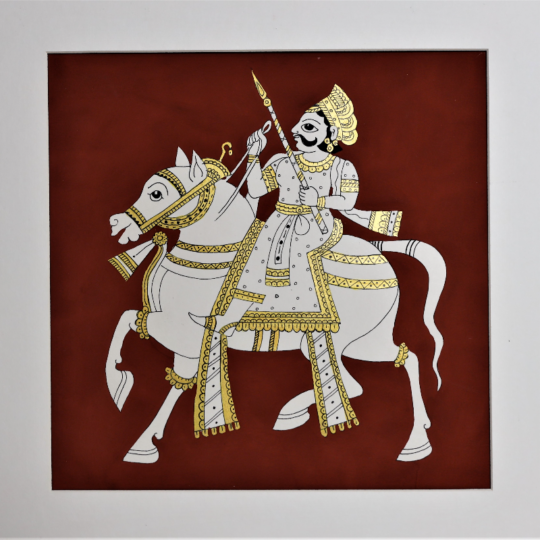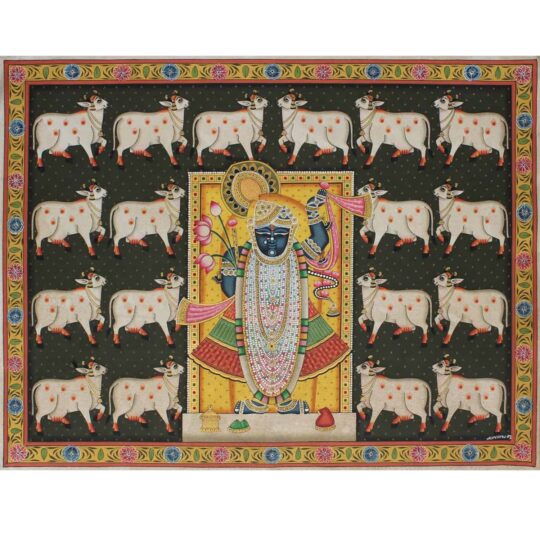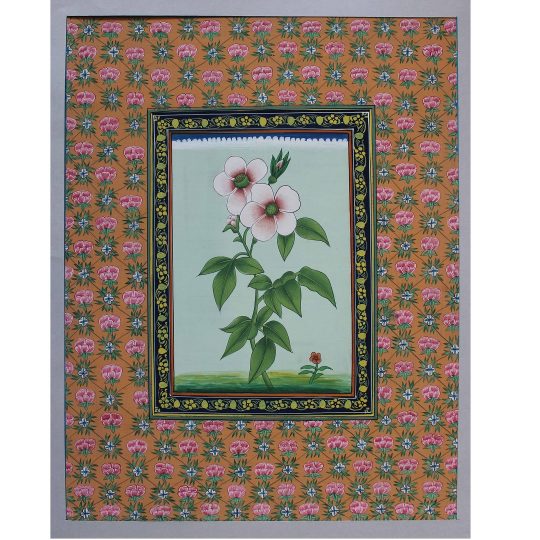Description
In the Phad Painting of Rajasthan the initial sketch is executed with a non-permanent yellow colour, followed by an application of colours in the order of green, brown, vermilion, and sky blue. Finally, black colour is used for outlining the figures. The main theme of the paintings is the depiction of local deities and their stories, and legends of erstwhile local rulers. The paintings depicting exploits of local deities are often carried from place to place and are accompanied by traditional singers, who narrate the theme depicted on the scrolls. The outlines of the paintings are first drawn in the block and later filled with colours. The paintings depict the various folklores on a scroll of canvas, scene by scene, with utmost clarity. The nuances of each scene are explained by professional narrators, known as Bhopas. The art of painting the hands is approximately 700 years old and it originated in Shahpura, a princely state, and 35 kilometers from the district of Bhilwara in Rajasthan. The phads that display the heroic exploits of Gods and many Rajput warriors are generally of five kinds namely Pabuji, Devnarayan, Krishna, Randal (Ramayana), and Ramdevji. Of these, the most legendary and popular is that of Pabuji, who is considered a demi-god in Marwar, even today.





